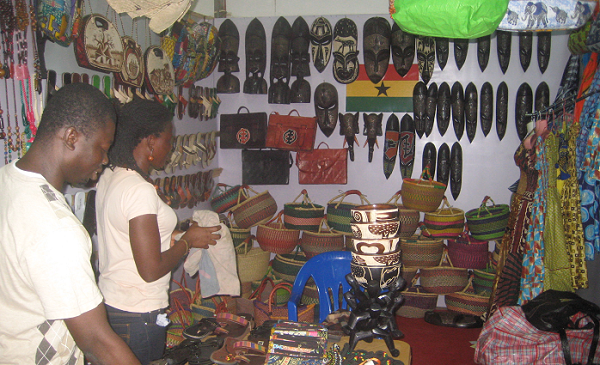
'Recognise handicraft as an economic enterprise’
The government of Ghana has been urged to recognise handicraft as an economic enterprise that could create opportunities for economic growth in rural communities, increase employment avenues and reduce income inequalities among the people.
According to a Consultant for the Centre for Promotion of Imports from Developing Countries, Mr Mark Kwami, the sector was still being regarded as cultural and tourism related even though handicrafts were being produced in many villages in Ghana and, thus, qualified it as an economic activity that ought to be harnessed.
Mr Kwami was speaking to the Daily Graphic on Friday, February 9, 2018 on the sidelines of the four-day Ambiente Trade and Exhibition show held in Frankfurt, Germany.
“The handicraft sector has so much potential and Ghana cannot continue to leave its promotion in the hands of the centre and other donor countries,” Mr Kwami pointed out.
CBI programme
The centre is sponsored by the Netherlands government and aims at boosting the competitiveness of handicraft exporters in developing countries, as well as improving their access to European markets.
Over 100 producers and exporters from Ghana who have benefitted from export coaching programmes run by the centre are being assisted to gain a foothold in the European market.
Presently, some 20 small and medium-sized enterprises (SMEs) are undergoing training under an export trade finance project.
According to Mr Kwami, the market for handicrafts in Europe keeps growing; hence the need to get SMEs certified to give them confidence to scale up their efforts to enter the European market.
Companies in Ghana that have benefitted from the export coaching programmes and who participated in the fair include TradeAid Integrated based in the Northern Region of Ghana, which facilitates trade for basket producers in the region; Accra-based Accent Furniture and Unique Home Décor.
The others are Tekura Accent Limited, Ashaiman-based Straw Basket and Ceramics Company and Matamiss Ghana.
Financing
Mr Kwami maintained that providing means of funding for the handicraft sector of the economy by the government would ensure that rural communities had income they could rely on to improve their livelihoods.
“The craftsmen need access to loans from the government and at moderate interest rates in order to reduce their dependency on financial institutions which charge them high interest rates,” Mr Kwami stressed.
He emphasised that with women dominating the handicraft trade and being vulnerable, it was important that they were assisted, “because when women earn income, the impact to the family is much bigger than that of men”.
Many women engaged in handicraft, he added, needed money to build new workshops and engage more hands so that skills transfer could become generational.
